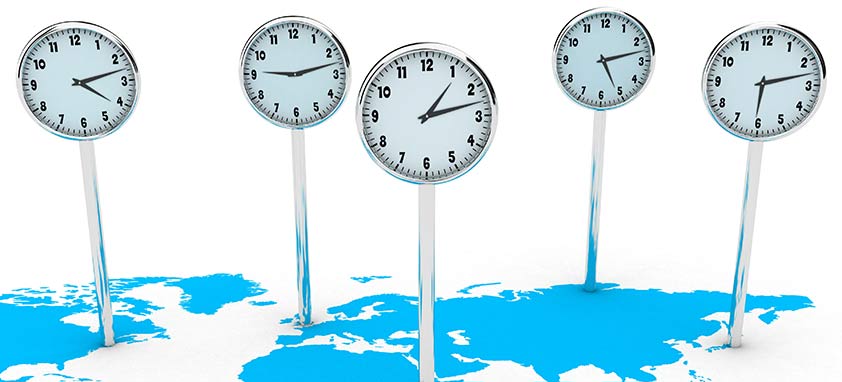Tips to help you arrive refreshed at your destination
Have you ever traveled to a different time zone and found yourself wide awake at 2 a.m. or hungry for breakfast in the middle of the night?
If so, you’re one of the 93 percent of travelers who experience jet lag, according to statistics from the American Sleep Association. One of the most common sleep disorders, jet lag affects the body’s circadian rhythm, or biological clock.
Symptoms can include fatigue, headaches and insomnia. But jet lag doesn’t have to ruin your business or vacation plans. These easy tips will show you how to avoid jet lag—or at least minimize it.
Prepare Before You Go
Reduce the effects of jet lag by gradually changing your routine so you’re functioning on the same time zone as your destination. If you’re headed east, try going to bed a few hours early each night; if you’re headed west, go to bed a few hours later than normal. This is easier if you build up to it slowly.
Traveling when you’re well-rested can also minimize jet lag. So try to get a good night’s sleep before your journey.
Beat Jet Lag In-Flight
Staying hydrated will help keep jet lag symptoms at bay. Consume plenty of water. When it’s time to eat, choose light meals and avoid alcohol, which can be dehydrating.
Whether or not it’s a good idea to sleep on the flight depends on how far you’re traveling and the time difference. On red-eye flights, you can take short naps to stay rested. Setting your watch to your destination’s current time can also help prepare you for arrival.
Because sunshine can help your circadian clock adjust to a new time zone, some airplanes have begun introducing light therapy to help passengers overcome jet lag. Special bulbs with light-emitting diodes (LED) can trick the body into thinking it’s daytime during a long-distance overnight flight.
While American medical research is only beginning to understand (and has yet to confirm) any claims, acupuncture may help overcome jet lag by triggering the body’s horary cycle. According to Chinese medicine, the body has 12 meridians. Stimulating horary points on the body mid-flight—which can be done by simply tapping the areas with your fingers or the tip of a closed pen 25–30 times in short blasts of five strokes—is thought to help reset the body’s biological clock.
Adopt Your New Location’s Routine
It can be tempting after a long-haul flight to head straight to your hotel and crash. This can make jet lag worse. Frequent flyers and flight attendants recommend adapting to the routine of a new time zone as quickly as possible.
“I try to stick to the schedule of the country that I am in, so if I land at noon after working a red-eye, I try to stay awake until at least 8 p.m., or only take a short nap,” says flight attendant Kara Mulder.
Even if you’re exhausted, try to force yourself to stay awake until an early local bedtime. Practice fatigue management tricks such as eating high-protein foods and exercising to keep your energy levels steady.
Sleep Tight
When it’s time to fall asleep, take advantage of sleep aids such as earplugs, an eye mask, noise-canceling headphones or curtains that block bright light. Homeopathic remedies such as lavender oil are often useful for overcoming jet lag and can make falling asleep easier.
Choose Drugs Carefully
Taking a sleeping pill can not only help you get to sleep: It can help you experience a full cycle of truly restful sleep.
There are several natural sleeping remedies worth considering. Melatonin supplements simulate the natural hormone in your body that regulates sleep patterns. It’s one of the most common jet lag remedies, and is readily available over the counter at most health and drug stores. Taking a dose of melatonin when it’s time to sleep is a safe and effective way to doze off.
More potent sleeping pills, such as Ambien, require a prescription. Given the strong side effects that can occur, however, it may be better to stick with melatonin.
In Conclusion
Knowing how to prevent jet lag, or at least minimize its symptoms, will allow you to better enjoy your travels. Try these tips on your next trip, and see if you notice a difference.
Dr. Ernest Brown believes medicine should be patient-focused. He founded Doctors to You, an on-demand medical service offering traditional, house-call-style care for patients in Washington, DC, Maryland and Northern Virginia. Visit doctorstoyou.com or follow the doctors at facebook.com/doctorstoyou.




